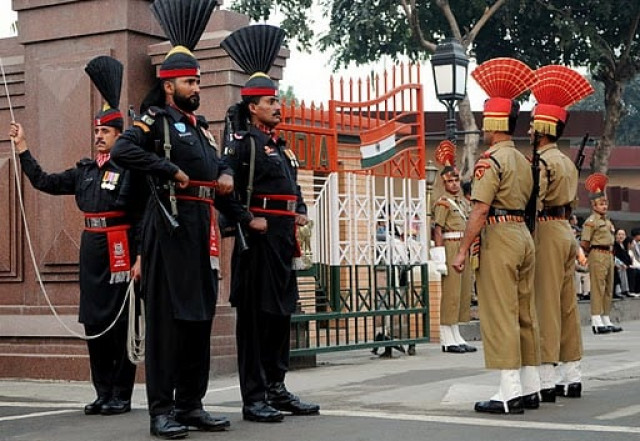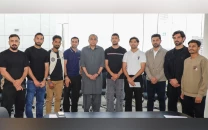No handshake at muted Pakistan-India border ceremony amid rising tensions
Crowds gathered at the Wagah border, but there was no handshake between soldiers due to heightened tensions.

The daily "Beating the Retreat" ceremony at the Wagah border between India and Pakistan, a long-standing ritual celebrated by both nations, took place on Saturday with one glaring absence: the customary handshake between the opposing soldiers.
The ceremony, which typically features soldiers from both sides performing high kicks and elaborate movements to booming patriotic music, saw a reduction in the usual show of unity and camaraderie.
This was due to the escalating tensions between the two countries following the Pahalgam attack in Indian Illegaly occupied Jammu and Kashmir (IIOJK) on April 22, which claimed 26 lives.
As soldiers from both the Indian Border Security Force (BSF) and the Pakistani Rangers performed their steps, the iconic moment of cooperation—a handshake at the gates—was conspicuously absent. Instead, the iron gates that separate the two nuclear-armed neighbours remained locked, symbolising the deepening divide.
Visitors on both sides of the border were still present, though much fewer in number than usual. While the Indian side of the border remained full of cheers, the Pakistani side was noticeably quieter.
The Wagah ceremony, a daily tradition that has endured for decades despite frequent diplomatic flare-ups, has always been a symbol of both national pride and the fragile relationship between India and Pakistan.
Indian authorities have ordered that all Pakistani nationals residing in India leave by April 29, a move that has separated families and caused widespread anxiety. Amid fears of military escalation, the mood at the Wagah border was mixed, with some locals fearing that further conflict could be imminent.
Earlier, Pakistan scored a diplomatic victory at the United Nations Security Council (UNSC) after a statement on the Pahalgam attack avoided strong language and terminology previously used in similar incidents, notably the 2019 Pulwama attack.
The UNSC's condemnation of the April 22 attack, issued after a four-day delay, notably refrained from directly mentioning the Indian government, instead urging cooperation with "all relevant authorities."







1733130350-0/Untitled-design-(76)1733130350-0-208x130.webp)
















COMMENTS
Comments are moderated and generally will be posted if they are on-topic and not abusive.
For more information, please see our Comments FAQ